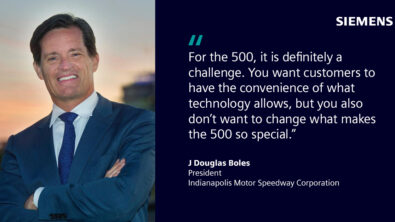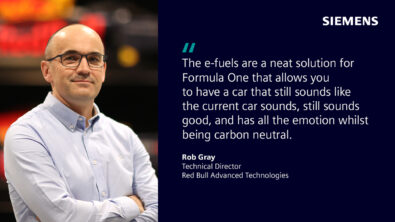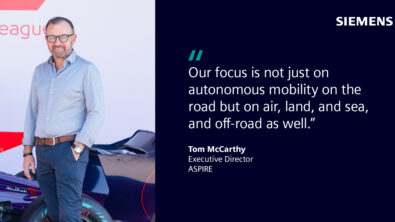The Mind of a F1 Team Principal: Christian Horner on F1 & More | Part 1
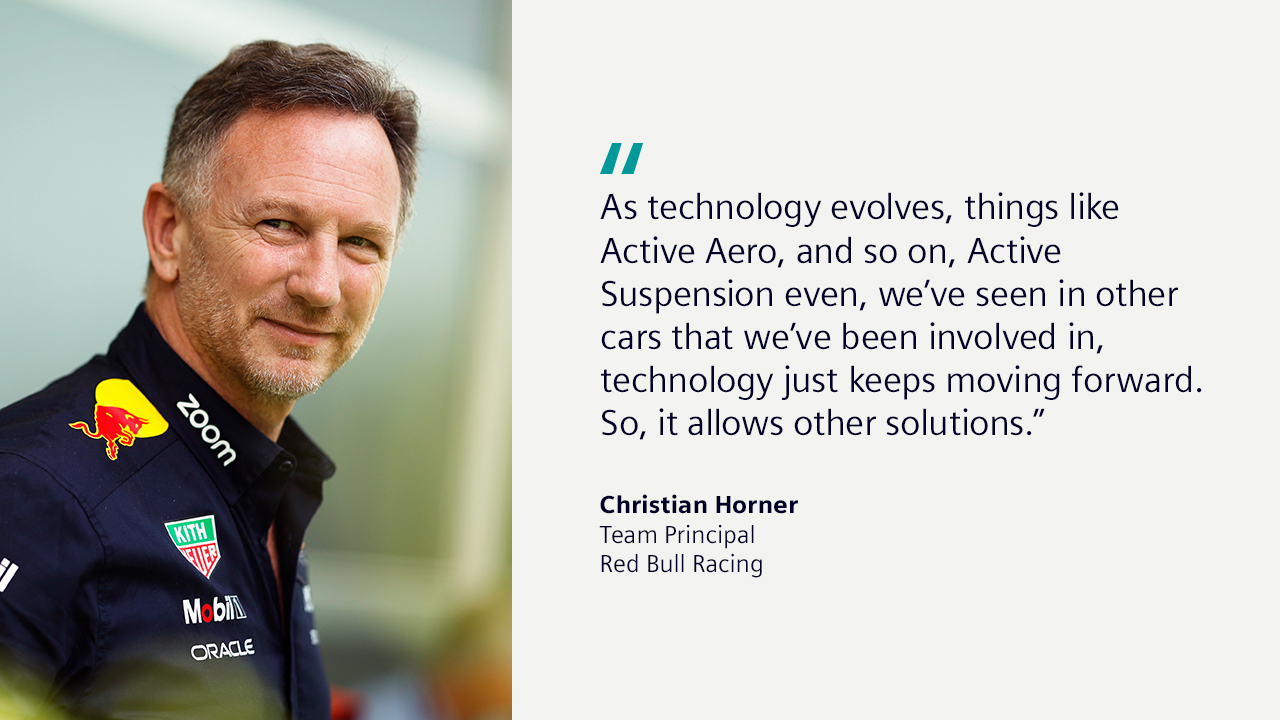
Listen on your chosen podcast platform 🎙️
or watch on YouTube ▶️
Introduction
In this opening episode, host Ed Bernardon and Red Bull Racing’s Team Principal, Christian Horner, take us on a deep dive into the transformative world of Formula 1. Spanning two decades of Christian’s leadership, they dissect the hurdles and tactics in response to the dynamic F1 rule changes, the complexities of managing a premier racing squad, and the valuable lessons Christian has acquired through his career.
What to expect from this episode
🔍 The biggest changes seen in F1
Since his tenure began in 2005, Christian Horner has observed a significant transformation in technology within the team. The simulation tools, which are now at the forefront of sophistication, have been instrumental in adapting to the dynamic regulatory environment. These regulations have undergone numerous major revisions, profoundly influencing the team’s engineering approach.
He notes that there have been several critical regulatory changes that have shaped their engineering strategies. The aerodynamic shift from 2008 to 2009 was a defining moment, necessitating a radical redesign of the car’s aerodynamics. The engine formula change from 2013 to 2014 marked another significant turning point. In 2017, a substantial chassis modification required further ingenuity. The latest set of regulations in 2022 introduced yet another considerable challenge, reinforcing the need for continuous innovation
🏁 The dynamic of working with Sebastian Vettel compared to working with Max Verstappen
Horner stated that Sebastian Vettel was a joy to have on the team, much like Max Verstappen, though they’re quite different from each other. Sebastian really liked to get into the nitty-gritty of how the car worked. He even visited the tire makers to see how they made the tires, especially when they got a new supplier. He always wanted to know more.
Max Verstappen, on the other hand, is pretty chill about the technical stuff according to Horner. With that being said though, when he’s behind the wheel, he’s amazing. He always gives it his all, even though he’s not too fond of test driving. For him, it’s all about the thrill of the race.
🏎️ Where the driving force for design comes from in Red Bull Racing
At Red Bull Racing, the design team thrives on a dynamic approach to innovation. A key part of that is allowing the freedom to navigate through the organization, challenge design norms, and foster creative solutions.
Another crucial role is more process-oriented, overseeing the entire campaign and development program. This includes ensuring adherence to financial regulations and strategically allocating resources to various development areas. The blend of creativity and managerial oversight is essential.
All-in-all, the engineering teams truly are the unsung heroes. Their exceptional work ethic and output are the backbone of the team’s design force, constantly pushing the boundaries of what’s possible in the realm of racing technology.
If you’re a fan of this podcast, then you’re surely a fan of Netflix’s hit show, Drive to Survive, where we get the inside scoop on the lives of drivers, managers, and team owners during the F1 season.
Well, in today’s Future Car episode, we get the inside-inside scoop as host Ed Bernardon sits down to talk with Oracle Red Bull Racing Team Principal, Christian Horner.
In Part 1 of this 2-part interview, Ed and Christian sit down to discuss what big changes Christian’s seen in F1 during his 20-year career as Team Principal. They also discuss how Red Bull Racing is balancing changes to F1 regulations, how he navigates the Team Principal Role, and a lot more!
Some Questions Asked
- When you’re on vacation, does racing pop in your mind a lot? (2:44)
- How has having been a racecar driver in the past formed who you are as a Team Principal? (5:03)
- If you could go back and change one decision you made when you were on the pit wall, which one would you change? (10:44)
- What’s some advice you can give to people that have to manage a big group of very passionate people? (17:00)
- Were you able to take some extra time in the last year to put into the new car? (21:58)
In This Episode You Will Learn
- The biggest changes Christian has seen in F1 during his time as Team Principal (4:02)
- How Christian compares working with Sebastian Vettel to working with Max Verstappen (11:30)
- Where Christian believes the driving force for design comes from in Red Bull Racing (20:31)
Connect with Christian Horner
Connect with Ed Bernardon:
[00:00] Ed Bernardon: The exciting sport of Formula One racing has a lot more intricacies and most people know. What does it take to manage an F1 Team? What are the priorities? How do you manage your drivers? Well, according to Christian Horner, Team Principle for Oracle Red Bull Racing, and today’s guests on the show, work culture should be inclusive, fun, and built on solid teamwork. In part one of this interview, Christian and I talk about some of the biggest changes he’s seen in F1 during his motorsports career. What it’s been like working with incredibly talented drivers all these years, and how Oracle Red Bull Racing is balancing changes to F1 regulations while still maximizing performance and a whole lot more.
[00:57] Ed Bernardon: Today, I’m speaking to someone who is a racecar driver. He’s founded, in the past, his own racing team. He’s the team principal for a Formula One team that’s won 13 championships, and broken all sorts of records along the way, and he’s even one of the big stars on the Netflix “Drive to Survive” series. I am really looking forward to my conversation with Christian Horner, team principal for Oracle Red Bull Racing. Christian, welcome to the podcast.
[01:26] Christian Horner: Thank you very much.
[01:28] Ed Bernardon: So, you’ve had a great year: one-two in the finish, you’ve won the championship constructors, drivers. And then, after you win a championship, you’re all excited, you are partying, prize giving with the FIA, and then the holidays come. You can step back and relax, you’re on vacation, and you try to let work go. But in the back of your mind, racing is probably popping in and out. So, now that you’ve had a little bit of time to reflect for the last few weeks, how have your ambitions and your expectations of what you think you can achieve in the coming year changed?
[02:05] Christian Horner: They haven’t really changed because the problem is this business never stays still. So, even though we’ve achieved all those things in 2023, your mind immediately, from the point that the championships are sealed, is already into the following season, into the future, into 2026 with a brand new set of regulations coming down the pipeline as well. So, yes, Christmas is a great time, and New Year holidays for a bit of time with the family — they get used to having you around — also this time of year there’s not as much travel as during the racing season. It’s been a bit of time for reflection, but everybody’s hit the ground running very hard as 2024 has kicked off.
[02:44] Ed Bernardon: When you’re on vacation when you’re through the holidays, does racing pop into your mind a lot or would you say it’s almost gone completely?
[02:52] Christian Horner: If you’re a racer at heart, it’s always in there somewhere. But it’s important to be able to get downtime, spend time with your family, and recharge; otherwise, it’s unsustainable, being consumed by Formula One for 365 days of the year.
[03:05] Ed Bernardon: Are you fully recharged right now?
[03:07] Christian Horner: Yeah, I had a good break. There was the first mandatory break over the Christmas holidays, enforced by the governing body, which was, I think, a really positive thing. So, everybody’s refreshed, recharged, and ready for the season ahead.
[03:20] Ed Bernardon: What’s the most fun thing you did during the break?
[03:23] Christian Horner: I think it’s just spending time with my family. We got to do things that we don’t usually get to do as a family during that time. I’ve got a young family, and it’s always great to get time with them.
[03:35] Ed Bernardon: So, when you started as a team principal, you were 31 years old in 2005, and you celebrated your 50th birthday last November. So, almost 20 years that you’ve had this job. Over those 20 years, how would you say, what are the biggest changes that you’ve seen in Formula One? What do you think are the things that have made the sport evolve the most, let’s just say from a technology standpoint, the big changes, over the time you’ve been principal here?
[04:02] Christian Horner: I think that technology has just moved forward immensely from the point that I arrived, the simulation tools we use now are so advanced, and all of the tools that we work with. The regulations have changed dramatically since I arrived at the beginning of 2005 with several major regulation iterations.
[04:18] Ed Bernardon: What’s the biggest regulation, you think, that’s had an impact on how you had to engineer the car?
[04:23] Christian Horner: Well, I think there’s been a few along the way. There was a big change from 2008 to 2009, as the cars’ aerodynamics got changed dramatically. There was a big change then in 2013 and 2014, with a massive engine formula change. There was a big change in ’17, with another significant chassis change. And then, of course, the latest set of regulations that we had that were introduced in 2022, again, another significant change.
[04:52] Ed Bernardon: And more to come, too. We’ll talk about those probably in a short while here. So, you are a racecar driver, and racecar drivers have certain personalities and certain approaches to problems. How has having been a racecar driver in the past formed who you are as a team principal?
[05:09] Christian Horner: I think it gave me a great education because being a driver can actually be quite a lonely experience. You’re sitting in the cockpit, and you’re looking out, and you need to feel that you’ve got a team behind you, that the team believes in you. I think that I drove for some good teams and not-so-good teams in my career and the difference was always the people and the culture in that team. And that would inspire and get the best out of you as a driver. And certainly, that’s the way I’ve always tried to operate any race team that I’ve been involved in: to get the best out of people, to work collectively as a team, to work as a group.
[05:44] Ed Bernardon: But if you’ve had the excitement of being in the cockpit and driving, and then suddenly you make this decision, “Oh, maybe it’s not for me,” and I’ve heard you talk about it before. As you go from karting to higher levels of racing, it gets more and more difficult. And I’ve heard you tell the story of following Juan Pablo Montoya into a turn. And I’ll tell you the thing that really stuck with me from that story you told is, “I was following through the turn, and I could see the tire almost coming off the wheel.” How did you know that you’d finally pushed yourself to the limit? Because that’s a hard thing for people to do in any kind of career.
[06:20] Christian Horner: I think you just have to be honest with yourself. And the higher you get, the tougher it gets. And I recognized that, at that level I didn’t have my head, my brain, and my foot were connected. I could feel a debate going on, my heart was saying one thing; my head was saying another regarding the amount of commitment in high-speed corners, for example. And seeing and witnessing that with a driver like Juan Pablo, just very clearly I thought, “Okay, I can’t do that. I can’t disengage to a point to let myself go to commit that amount of risk.” And I think as soon as you start building your margins, and I knew that I need to use what I’ve learned and apply it to something else.
[07:04] Ed Bernardon: What kind of car were you driving in? Was that a Formula 3000 at that point?
[07:08] Christian Horner: Formula 3000, which is the equivalent of a Formula 2 car. That was the naming of the championship at that time.
[07:14] Ed Bernardon: Have you ever gotten into one of your more recent F1 cars and tried it out?
[07:18] Christian Horner: No, I haven’t. I’ve never driven a Red Bull car. Maybe this year, in our 20th year. Maybe I’ll get a chance to.
[07:23] Ed Bernardon: So, over all these years, how has the role that the team principal plays changed? What are the big significant changes?
[07:32] Christian Horner: I think, scale. Obviously, I’m team principal and CEO now of a big group of people. And it’s not just Red Bull Racing, it’s Technology, it’s Red Bull Powertrains, it’s Red Bull Advanced Technologies as well. So, it’s more diverse. The role obviously has evolved over the years, we’ve got a lot more partners that we work with now, the business is a lot bigger. When I first came here, there were about 430 people. This year, right now, we’re about 1600 people on site.
[07:59] Ed Bernardon: So, you’re running a company?
[08:01] Christian Horner: Yeah, I’m running a significant company.
[08:03] Ed Bernardon: So, you’re running a company, and you’re running a racing team. So, when people see you on “Drive to Survive,” or anything: “Well, this is his job, he’s got to make this car go faster, he’s got to make this team click.” But running a company with that many people, it’s not an easy thing to do, obviously, as I’m sure you know. So, the fact that you now also have to run a much bigger company than you didn’t have to 20 years ago, did you have to change how you’re managing the racing team, so you could give it what it needed?
[08:33] Christian Horner: I think you’ve got to get good people around you. And I like that, from Monday to Friday, I’m the CEO of a high-performance technology business and for 24 weekends of the year, I’m the team principal of a leading sports team. That involves a lot of travel as well. And I think that you have to have good people around you, and you have to delegate, and you have to obviously guide, but you have to empower the management around you. Otherwise, the stuff that we’re doing would never be possible. You can’t be over every single detail of everything that’s going on in a business with 1600 people in.
[09:05] Ed Bernardon: Good advice for any CEO: You have to learn how to delegate.
[09:09] Christian Horner: You’ve got to be able to let go. You’ve got to set the goals, set the targets.
[09:13] Ed Bernardon: What was the hardest thing you’ve ever had to let go of?
[09:16] Christian Horner: I learned reasonably quickly to focus on the things that you can control rather than things that you can’t; that’s where to put your energy, where to put your focus and time.
[09:26] Ed Bernardon: So, as you grew the organization, there were probably some things that you really enjoyed doing — many. But then you had to say, “I just don’t have time for those.” What was the most fun thing you enjoyed doing that you finally had to let go and let somebody else do?
[09:41] Christian Horner: Difficult to say, really because I’ve still stayed involved across all the fundamental aspects but perhaps not quite as at the coalface, as it were. Race weekends haven’t changed for me, I’m still on the pit wall, I’m still working with the strategists and the race engineers, running how they run. And that, for me, is the absolute basis of what I do. I’m very involved in the commercial side of the business and driving that. The technology and the engineering side of the business — again, I’m not an engineer by training, I just try to surround myself with the best in the business, whether that’s Adrian Newey, Pierre Wache, or the plethora of talent that we have throughout all the technology businesses here.
[10:21] Ed Bernardon: Did you ever wish that maybe you should have been an engineer?
[10:23] Christian Horner: No. I enjoy doing what I’m doing. It’s about dealing with people and trying to get the best out of people. I’m privileged to work with a great group of people in the team, and that’s the thing I take most satisfaction from.
[10:37] Ed Bernardon: You mentioned the pit wall; I’m sure it must be fun to be on the pit wall and figure things out. So, over these 20 years, if you could go back and change one decision you made when you were on the pit wall, which one would you change?
[10:50] Christian Horner: Of course, there are always things that you’re learning in every race, you’re learning all the time. But I always say, “You don’t look back. Learn from your actions and apply them to the future.” So, I very rarely look back and say, “Oh, wish I’d have just done that.” I say you’re very forward-looking. I’ve always been very forward-looking. So, of course, there are always things that you can do better, but I’ve not procrastinated on them and have learned from them. And maybe we’ve lost a position through the timing of a pit stop, but it’s more about the lessons that you learn and applying them to the future.
[11:19] Ed Bernardon: How would you compare 2010 to 2013, working with Sebastian, how would you compare in contrast to working with Max in the 2021 to 2023 era?
[12:12] Christian Horner: Both are hugely talented, great drivers. Sebastian was a pleasure to work with, as is Max, but different characters. Sebastian was very intense, very into the detail, and very interested in all technical aspects of the car. He would go to the tire suppliers to understand how they manufactured the tires, for example, when we changed tire manufacturers because he was hungry for info, he was hungry for details. Max was much more laid back in terms of the technicality of the car, but an absolute gift and driving force in that car that you know you’re going to get 110% out of him. Testing is not his favorite thing. He’s just a race driver, he just wants to race the car. And that is really where his enjoyment comes from.
[12:18] Ed Bernardon: But doesn’t that make it hard for the engineers? Like you said, Sebastian is into the details; he wants to go visit the tire manufacturer. So, he’s probably going to be into telling you the details of what he felt in a turn. And Max is more qualitative.
[12:30] Christian Horner: Sebastian’s debrief could take about an hour and a half, as he would describe from the moment that he left the garage to go to the grid to pretty much going to the toilet after the race. With Max, he will just focus on what he needs to go faster. He will just focus on the limitations of the car rather than telling you a story about everything that’s happened. He’s smart enough; he knows the amount of data that we have, and he’ll just focus the engineers on, “This is limiting me from going quicker. This is what I need. Forget the other stuff, I can cope with that, but focus on this.”
[13:02] Ed Bernardon: Which is better for the engineer among those two approaches?
[13:05] Christian Horner: I think both. Engineers are always hungry for data and information.
[13:08] Ed Bernardon: Anything they can get, right?
[13:09] Christian Horner: Anything they can get. And of course, we have a huge amount of sensors and logging on the car. But the driver, as the operator, is getting that feeling and he’s dictating how the car is being driven. So, he’s the biggest input, and therefore, he’s got a real sensitivity. So, therefore, the feedback from the driver is invaluable alongside the data.
[13:30] Ed Bernardon: When a racecar driver puts a helmet on, sometimes their personality changes; when they take it off, the opposite happens. So, helmets off, you’re hanging out, and you’re having a beer with each of those guys. How do you compare what they’re like when they don’t have their helmet on?
[13:45] Christian Horner: They are both great fun, and they’re both really nice guys. They’re just fun to be around. Both are hugely competitive when they’ve got a helmet on or sitting in a car, but outside of the car, just really nice guys to hang out with and spend time with. Both have great senses of humor and are just enjoyable to spend time with.
[14:03] Ed Bernardon: You stay competitive off the track, and I’m sure that must be with you too then. What have you done that’s competitive with them off the track?
[14:10] Christian Horner: It’s always competition, whether it’s playing paddle tennis or on a tennis court with Sebastian or on a padel tennis court with Max; they’re hungry. Sebastian would want to keep playing until he could beat you, where he’d wear you down through his physical condition, I would say, rather than skill. It’s always interesting to see, in any other sporting aspect. You see the character of the individual come through the competitiveness, how hungry they are, how much they want it.
[14:41] Ed Bernardon: Is Max a padel tennis guy too?
[14:44] Christian Horner: Yeah, he’s obsessed with it. He’s played all the sides.
[14:46] Ed Bernardon: Oh, really? Does he ever play with Sebastian?
[14:50] Christian Horner: I don’t know if they have ever played, but that would be an interesting game.
[14:54] Ed Bernardon: Have you seen this series called “Beyond All Limits: Hamilton Versus Verstappen”? It was just 3 24-hour episodes. I saw it on the plane.
[15:02] Christian Horner: I haven’t, no.
[15:03] Ed Bernardon: So, it’s a series about the competitive years between Hamilton and Max. It starts off with Sir Jackie Stewart, and he says, “God has given gifts to 20 men to race in Formula One, then there’s the top six, then there’s the extraordinary three. And then there’s the genius with a head to take it to another level” — the mind is everything.” Genius to take it to another level. So, what is it you think is in the mind of Max, that’s not in the mind of the extraordinary three, the other two? What is it?
[15:40] Christian Horner: Difficult, because I don’t know the other three, I’ve not worked with them. But what I do see in Max is just a hunger, a desire, but huge natural talent.
[15:51] Ed Bernardon: More hungry than other drivers, you think?
[15:53] Christian Horner: Quite probably, yes. You can see it in the way he drives. He drives with a lot of heart, he drives with a lot of passion, he drives with huge commitment, huge bravery. And you see that in some of the great drivers, whether it was the late great Ayrton Senna, or Michael Schumacher, or more modern drivers like Lewis Hamilton, and Fernando Alonso; they share those kinds of characteristics.
[16:17] Ed Bernardon: As a team principal, can you create that passion in another?
[16:20] Christian Horner: It’s either there or it’s inbuilt. I’m sure the top 50 tennis players in the world, technically, are all probably at a fairly similar skill level. It’s pressure points, it’s the big sporting moments, which is, that last set of tires, and qualifying is when the pressure comes, how they deal with pressure, which is the most crucial element.
[16:40] Ed Bernardon: Speaking about passion, I think it was at the Belgian Grand Prix, where Max had some passionate words with his race engineer.
[16:48] Christian Horner: Yeah, there’s been a few of those.
[16:50] Ed Bernardon: As you said, if you’re going to be successful, you’ve got to be passionate. So, when there are a lot of passionate people together—and that’s just like one teeny example, you must run into it quite a bit—what’s some advice you can give to people that have to manage a big group of very, very passionate people, which if they didn’t have that passion, you wouldn’t be successful?
[17:09] Christian Horner: People are going to let off steam; they’ve got to vent sometimes. And I think that, obviously, there has to be respect, but to bottle that up and constrain it tends to come out sideways. So you’ve got to allow them to vent, you’ve got to allow them to express themselves. A problem that we have, unlike any other sport, if you were a football or a soccer player on the field and you are having a moment, either talking to yourself or maybe even to the coach, it’s not publicized, whereas everything in Formula One, every communication between driver and engineer, the most emotive moment in time, is captured and broadcasted to…
[17:46] Ed Bernardon: Certainly, “Drive to Survive” is getting it all.
[17:48] Christian Horner: And then, as soon as they stop and they get out of the car, they got a microphone under their nose, before they get in the car and start a race, they got a microphone under their nose. So, it’s very intrusive compared to other sports, and that’s why you get to see and hear more, sometimes, of the pressure point moments.
[18:06] Ed Bernardon: So, it must be possible to have too much passion. You must have seen someone somewhere gone too far, too passionate, maybe butting heads a little bit too much.
[18:15] Christian Horner: Yeah, sometimes. It’s easy, isn’t it? If you look at Sergio Perez, his race in Mexico, the desire that he had to lead that Grand Prix into the first corner outweighed his judgment, and he made a move that didn’t pay off and cost him participation in the race. So those moments can and will happen in any sport, in any walk of life.
[18:36] Ed Bernardon: So, Checo was part of your one-two finish. But things weren’t always smooth sailing with Checo through the whole year, let’s just say. What advice are you giving him now for the year that’s coming up?
[18:50] Christian Horner: I think we know what Checo is capable of. When Checo is firing on all cylinders, he’s a phenomenal driver and racer and Grand Prix winner, finishing as the runner-up in last year’s World Championships. So, I think he just needs to ensure that he’s consistent over a 24-race calendar and qualifying within the front part of the grid, so he can be a real factor on Sunday races. So, I would say qualifying is probably the biggest thing that he needs to focus on for consistency.
[19:22] Ed Bernardon: I mean, you can tell someone to be more consistent, but if I was Checo and I said to you, “Okay, I want to be more consistent. Christian, what do I need to do?” What would you recommend?
[19:31] Christian Horner: I think that’s just an approach as well as just trying to achieve consistency in your approach to a Grand Prix weekend, your travel, your application to it. So, it’s controlling the elements and removing the distractions to be able to be absolutely in the zone for those moments in time.
[19:51] Ed Bernardon: So, on a team, you’ve got a team principal, you’ve got a technical director, and you’ve got Adrian Newey, Chief Technical Officer. So, Adrian used to be really involved in the designing of the cars, he’s stepped back a little bit, working a lot with Red Bull Advanced Technologies now and designing submarines, and all sorts of things. So, when it comes to those three, but he’s still involved [21:40 inaudible].
[20:13] Christian Horner: Very much so. Adrian is involved in the concept and development of the car and working with the engineers, challenging the engineers, acting as a mentor. So, he’s still very much involved.
[20:24] Ed Bernardon: So, between those three roles, where would you say the driving force is, as to driving the design forward?
[20:31] Christian Horner: They’re all different. Adrian is more of a sort of maverick role; he has the freedom to move around the organization, to challenge, to influence, to come up with creations. Pierre is much more process-driven because he’s looking at the whole campaign, he’s looking at the whole development program, he’s looking at the compliance with the financial regs as well, where we should spend our money and in what areas of development. You need all the creativity, you need all of the managerial side. And, of course, the engineering groups are doing an incredible job in what they’re doing and what they’re producing and developing.
[21:12] Ed Bernardon: McLaren showed their new livery this week, and Zak Brown said, “I’m a little bit worried about those guys over there with the Red Bull because I think they started working on the new car a little early last year because they didn’t have to worry about the car from last year.” Was that an advantage for you? Were you able to start working on the car sooner rather than later?
[21:33] Christian Horner: I think we’ve had such a good basis in 2023 that it was evolution, not revolution. But, of course, we were further up the curve on our set of very stable regulations. So, others started to catch at the end of the year, different rivals at different circuits. I think that will continue into 2024. I think that we will have more competition from our competitors, as inevitably with stability, there will be convergence.
[21:58] Ed Bernardon: Were you able to take some extra time in the last year to put more time into the new car?
[22:04] Christian Horner: I think the fact that we managed to win the championship early obviously enables you then to flip your resource early to the following year. But, of course, we’ve had some fairly major constraints in wind tunnel time, because obviously, where you are in the championship is effectively a handicap system, after the amount of time of wind tunnel usage that you’re allowed.
[22:24] Ed Bernardon: So, the way the regulations are set up, it’s not as big as an advantage?
[22:28] Christian Horner: No, the way that the regulations are set up is to give more development time to those that are further down the grid.
[22:33] Ed Bernardon: I suppose if you have more rules, then it becomes more complex. You have to study more, but there may be more loopholes in there that you can find.
[22:43] Christian Horner: As I say, regulations are incredibly complex. And it’s sort of layer upon layer of regulation, and that’s what sometimes makes it hard. And that’s why we have the ability to ask for clarifications on the interpretation of regulations.
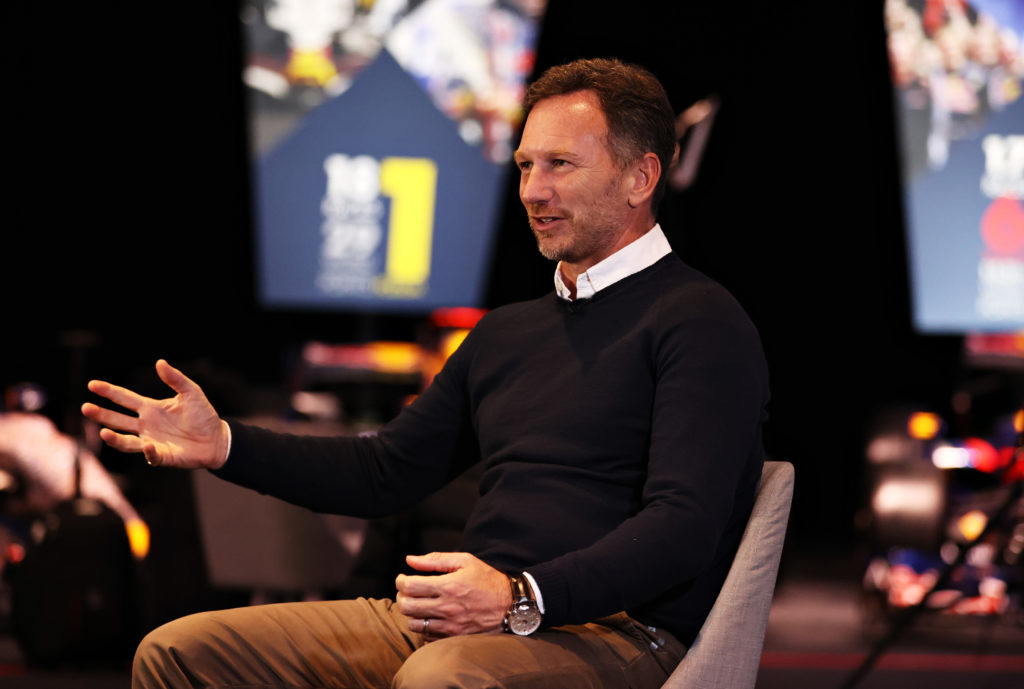
Christian Horner | Team Principal & CEO of Red Bull Racing
Christian’s path to the top rung of the Formula One management ladder began behind the wheel, as a talented young racer. At the age of 25, he founded the Arden International race team and quickly built the squad into a formidable winning machine. Following this success, Christian was asked by Red Bull owner Dietrich Mateschitz to run the Red Bull Racing Formula One team from its inception in 2005, making Christian the youngest F1 Team Principal at the age of 31. Christian has since led the team to thirteen world titles (six World Constructors’ Championships and seven World Drivers’ Championships). Then in 2021 Christian led the Team to become a fully autonomous independent Team by matching chassis design with its own power unit design and production facility, Red Bull Powertrains. He is also an Ambassador for the Wings for Life charity that is dedicated to finding a cure for spinal cord injury.
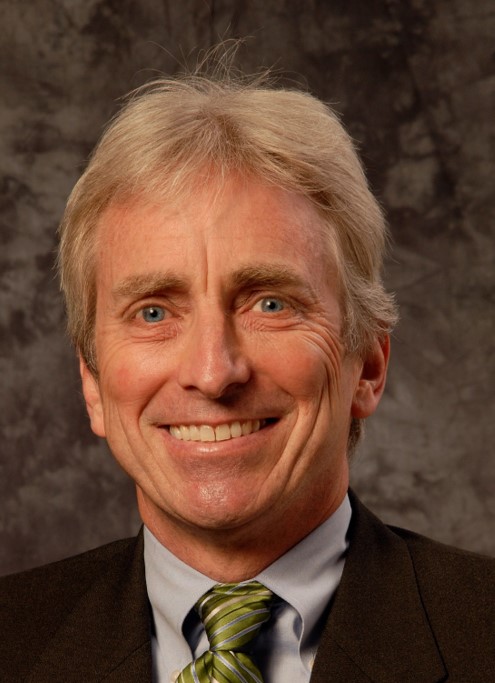
Ed Bernardon
Ed is currently VP Strategic Automotive Initiatives at Siemens Digital Industries Software. Responsibilities include strategic planning and business development in areas of design of autonomous/connected vehicles, lightweight automotive structures and interiors. He is also responsible for Future Car thought leadership which includes hosting the Future Car Podcast and development of cross divisional projects. Previously he was a founding member of VISTAGY that developed light-weight structure and automotive interior design software acquired by Siemens in 2011, he previously directed the Automation and Design Technology Group at MIT Draper Laboratory. Ed holds an M.S. in mechanical engineering from MIT, B.S. in mechanical engineering from Purdue, and MBA from Butler.
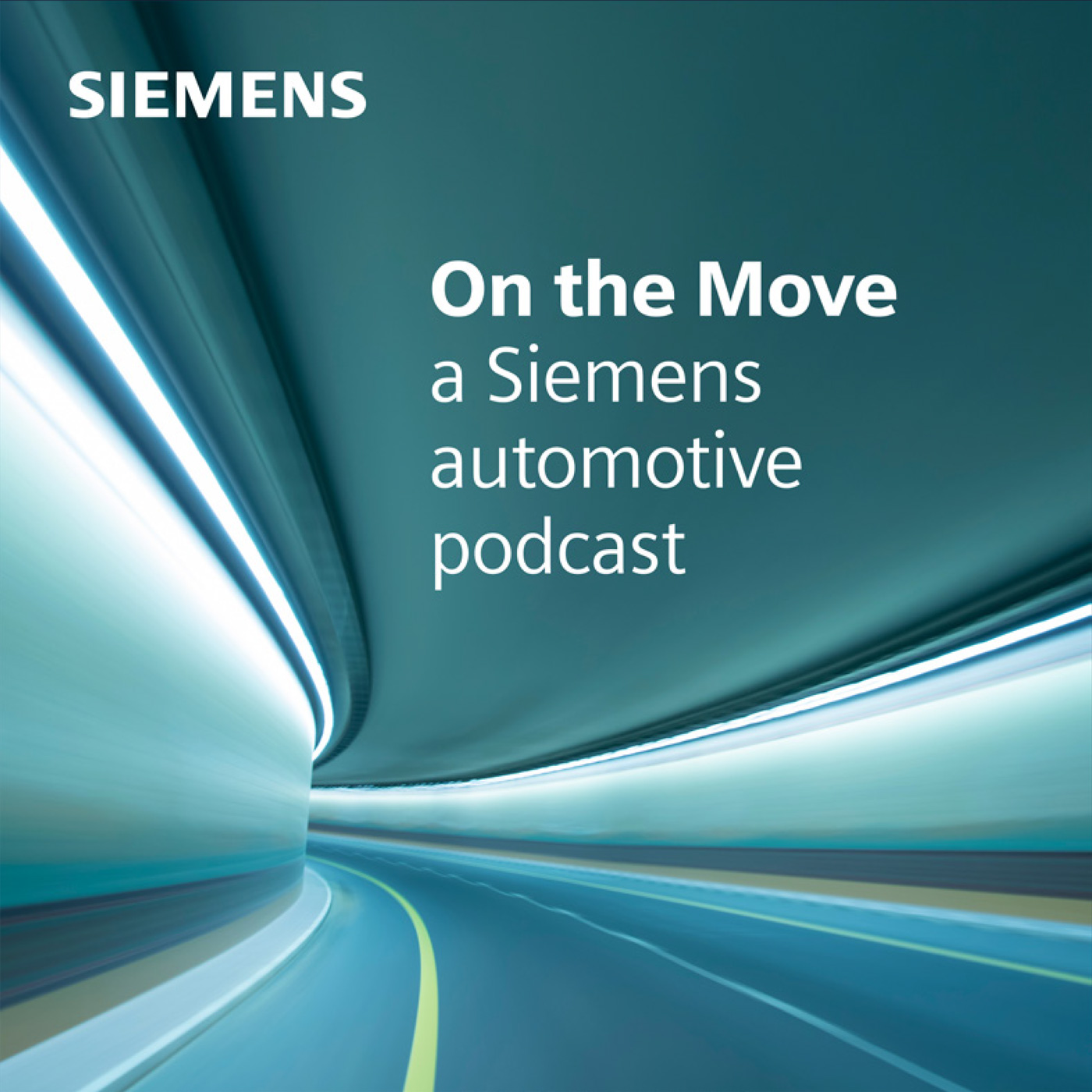
On the Move: A Siemens Automotive Podcast
The automotive and transportation industries are in the middle of a transformation in how vehicles are designed, made, and sold. Driven by an influx of new technologies, consumer demands, environmental pressures, and a changing workforce in factories and offices, automotive companies are pushing to reinvent fundamental aspects of their businesses. This includes developing more advanced and capable vehicles, identifying new revenue sources, improving customer experiences, and changing the ways in which features and functionality are built into vehicles.
Welcome to On the Move, a podcast from Siemens Digital Industries Software that will dive into the acceleration of mobility innovation amid unprecedented change in the automotive and transportation industries. Join hosts Nand Kochhar, VP of Automotive and Transportation, and Conor Peick, Automotive and Transportation Writer, as they dive into the shifting automotive landscape with expert guests from Siemens and around the industry. Tune in to learn about modern automotive design and engineering challenges, how software and electronics have grown in use and importance, and where the industries might be heading in the future.
